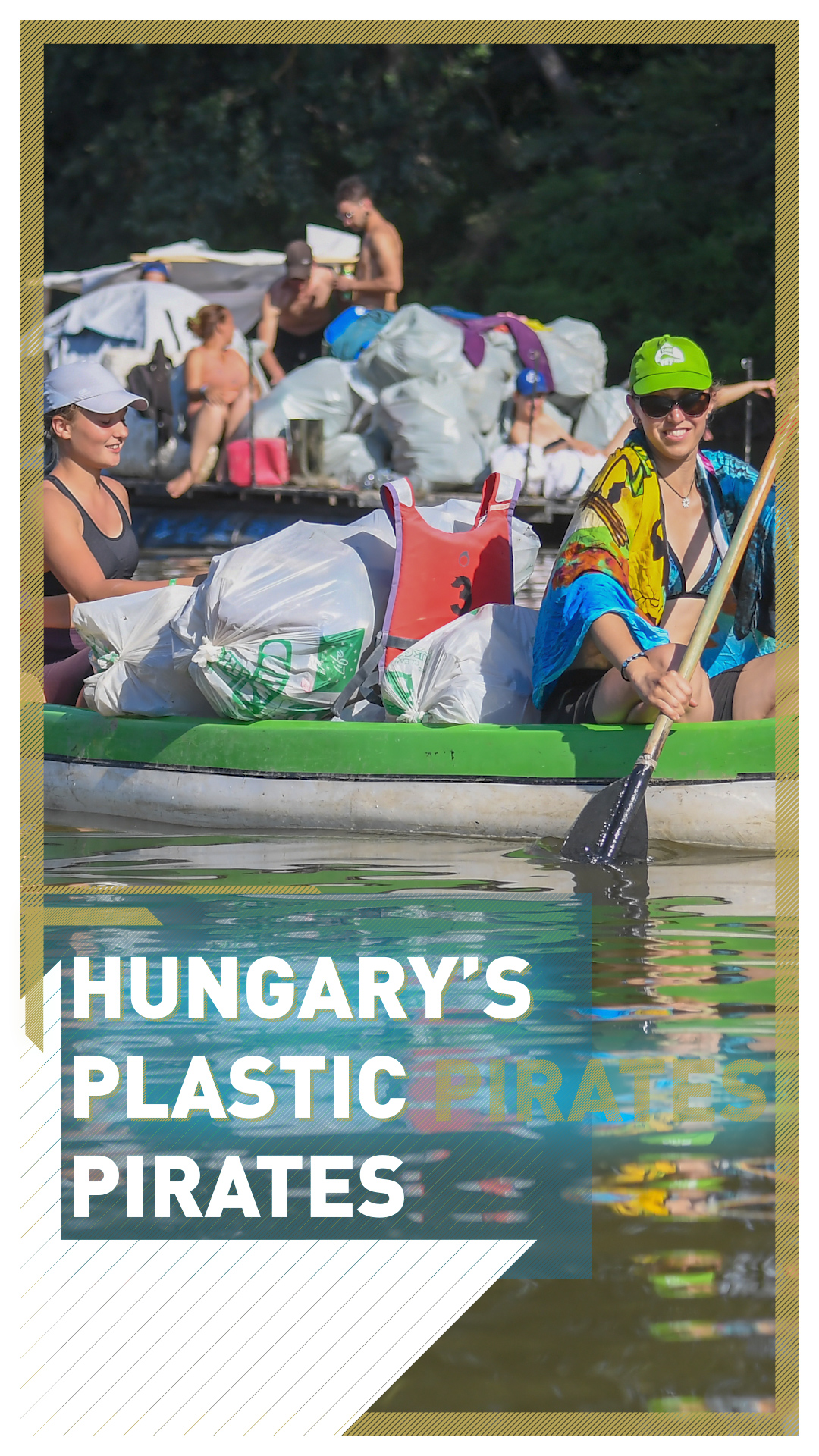01:52

They call themselves the "plastic pirates."
An environmentally minded group that comes together each year to build boats from collected plastic rubbish and paddle them down the Tisza River, each team in pursuit of the coveted "Plastic Cup."
The week-long race has a unique twist – the winning team is decided by how much trash they collect along the way.
This year, there were fewer participants because of COVID-19, and organizers were all required to produce negative test results.
the Plastic Cup or "PET Kupa" was born of a desire to create a fun way to address a serious problem.
"For years I have been trying to find a way to communicate to people that river pollution is not a hopeless case," Plastic Cup founder Attila Molnar told CGTN Europe.
"I think the key to our success is that we make plastic pollution into an inspiring thing, I mean we built boats out of it, we make a great adventure, a life-forming experience from it," he added.
Molnar's message is a pragmatic one when it comes to the problem of plastic pollution.
"By making boats out of the plastic bottles, we actively use the material, showing to people it's not something you can completely get rid of but use it time and time again," he said.
The Tisza River is badly polluted by plastic.
Each spring, hundreds of tons are washed down by floodwaters from Romania and Ukraine due to the countries' lack of proper waste management and education, leaving the surrounding forest strewn with trash. Molnar calls it "the plastic tsunami."
The race participants gather plastic to build their boats near the border with Ukraine, then paddle south.
Each day, they paddle about 15 kilometers, then moor the boats, go ashore and hunt for trash.
They're supported by hundreds of volunteers who come back year after year.
"They spend their holidays like this, they don't go to the beach, they have jungle fights with the mosquitos and the pollution, and for some reason, you can get addicted to it," Molnar said.
The boats cover 85 kilometers over a week, but the race isn't about distance, it's judged by how much plastic each team can collect.

Volunteers collect plastic trash from the shores of the Tisza River, that is then recycled. /CGTN Europe
Volunteers collect plastic trash from the shores of the Tisza River, that is then recycled. /CGTN Europe
It's then sorted and put in bags to be crushed into cubes, which are recycled. This year, they collected a massive 8.8 tons of plastic.
Plastic Cup volunteer and environmental lawyer, Kata Konstantin, is a three-year veteran of the race.
"You can find friends here and you can be sure that what you do is good – for nature, for us, for the next generation," she said.
Last year's winning crew made some modifications to their vessel this year - using recycled parts of an old rowing boat.
"My idea was to use my legs as well, because sitting for a week, that's not healthy. So here I can use the strength of all core muscles and my legs, while I'm using this three-meter-long paddle," Plastic Cup champion Szabolcs Toth said.
There are three support boats that assist in collecting the trash, including the first traditional Tisza River fishing boat to be made from collected plastic.
These boats also carry out the important role of handing out coffee and chocolate to the plastic hunters.
Because after a day on the water, trash collecting can be difficult and dangerous – as one new race participant discovered when she got lost.
"It was about half an hour that I was circling in the jungle, which is a little bit embarrassing, but at the same time it's really nice that people really care about you and don't let you die in the forest," joked Lilla Zentai.
It's that camaraderie and connection to nature that brings the pirates back, and the hope that one day, there won't be enough plastic in the Tisza to build their boats.